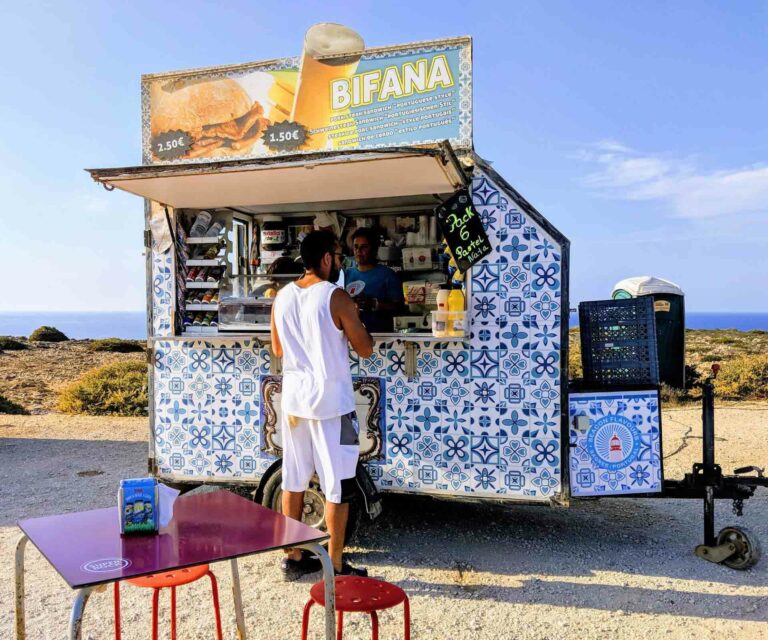Introduction: Exploring Portugal’s Street Food Scene
Portugal’s street food scene is a vibrant and diverse culinary experience, reflecting the country’s rich cultural heritage and cuisine. From traditional and regional delicacies to contemporary fusion cuisine, there is something for everyone to enjoy. Street food vendors and markets can be found throughout the country, especially in major cities like Lisbon and Porto. Exploring Portugal’s street food scene is a great way to discover the unique flavors and culinary traditions of this beautiful country.
Traditional Portuguese Street Food: From Pastéis de Nata to Cozido
Some of the most popular traditional street foods in Portugal include pastéis de nata, a custard tart pastry that originated in Lisbon, and cozido, a hearty meat and vegetable stew. Other classic dishes include bifanas, pork sandwiches with mustard sauce, and pão com chouriço, bread stuffed with chouriço sausage. Seafood lovers will enjoy fresh grilled sardines and bacalhau, salt cod dishes prepared in a variety of ways. Traditional street food vendors can be found in bustling markets and narrow alleyways throughout Portugal.
Lisbon’s Street Food Markets: A Gourmet Paradise
Lisbon’s street food scene has exploded in recent years, with a variety of gourmet food markets and vendors popping up throughout the city. The Time Out Market Lisbon is one of the most popular destinations, featuring a curated selection of local and international cuisine. Other markets like Mercado da Ribeira and Mercado de Campo de Ourique offer a mix of traditional and contemporary street food, from octopus salad to sushi rolls. Visitors can also explore the city’s many food trucks and pop-up events, such as the annual Street Food European Festival.
Regional Delicacies: Discovering the Flavors of Porto and Algarve
Each region of Portugal has its own unique culinary traditions and street food specialties. In Porto, visitors can try the famous francesinha, a sandwich filled with meat, cheese, and a spicy sauce. The Algarve region is known for its seafood, including grilled sardines and cataplana, a seafood stew cooked in a copper pot. Other regional delicacies include chouriço assado in Madeira and the cozido de grão in Beira. Exploring Portugal’s regional street food is an excellent way to discover the country’s diverse culinary landscape.
Fusion Street Food: Mix and Match Portuguese and International Cuisine
As Portugal becomes an increasingly multicultural society, fusion street food is becoming more popular. Vendors are mixing traditional Portuguese ingredients with international flavors, resulting in unique and exciting culinary creations. Visitors can try Portuguese-style sushi rolls or tacos filled with bacalhau. Fusion street food vendors can be found in food markets and festivals throughout the country, offering a delicious taste of Portugal’s evolving culinary scene.
Food Safety and Quality Standards: A Guide for Responsible Street Food Eating
When exploring Portugal’s street food scene, it is important to be aware of food safety and quality standards. Look for vendors who follow proper hygiene practices and use fresh ingredients. It is also a good idea to ask locals for recommendations and to avoid vendors who seem unclean or unsafe. Responsible street food eating can be a delicious and fun way to experience Portugal’s vibrant culinary traditions.

